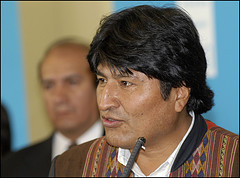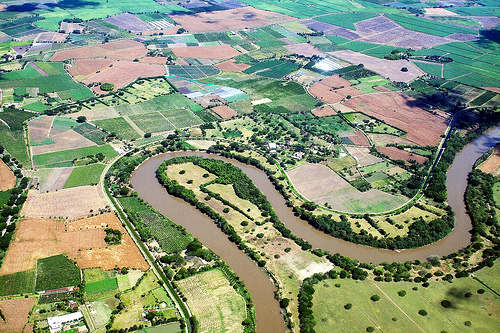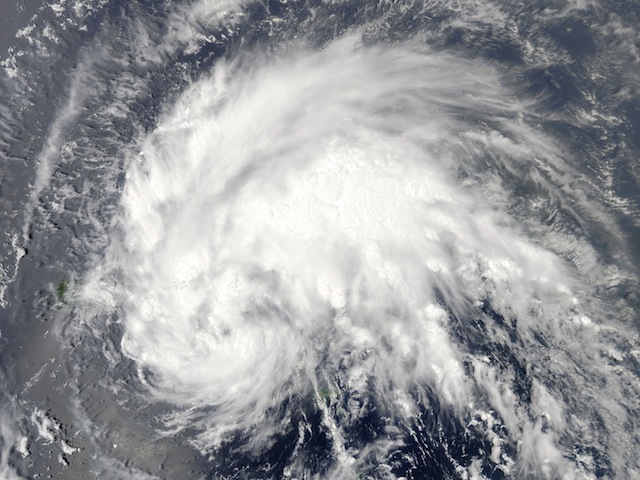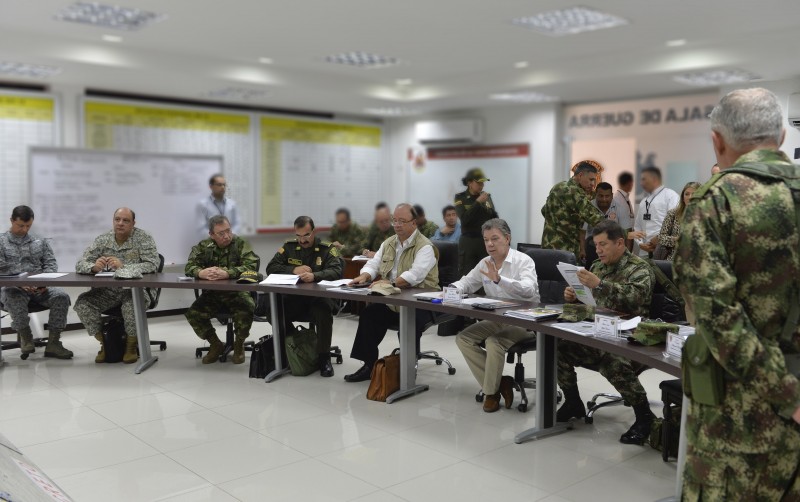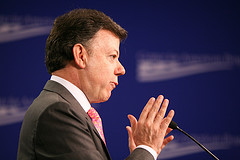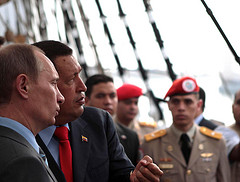
Latin America: Week in Review
Movement Towards Socialism Makes Gains in Bolivian Regional Elections; Opposition Maintains Strongholds
April 6, 2010 By Staff
Today in Latin America
Top Story – Bolivian President Evo Morales’ Movement Towards Socialism (MAS, in Spanish) fared well in Sunday’s regional elections, winning five of a possible nine governorships, according to independent exit polls. A sixth gubernatorial race in the department of Pando remains too close to call. Bolivia’s electoral commission says the final results of Sunday’s elections will not be available until April 29.
MAS experienced setbacks as well as gains. While the MAS came out of the elections stronger than before, polls before the Sunday elections suggested that the MAS may win seven governorships. Additionally, the three eastern departments of Santa Cruz, Beni and Tarija remain opposition strongholds, despite a targeted campaign effort from the MAS.
The relatively wealthy eastern states are home to Bolivia’s natural gas, currently one of the country’s most lucrative natural resources. Bolivia is the largest exporter of natural gas in Latin America, according to the CIA World Factbook.
In addition to the gubernatorial races, Bolivians voted for 144 department-level legislative seats, 337 mayors, 1,887 city councilmen and 23 local indigenous authorities and other posts, according to Agence France-Presse. MAS performed well in mayoral elections, but the city of La Paz, a Morales stronghold, elected leftist candidate César Cocorico from the left-wing Movement Without Fear, previously allied with MAS.
Other top news: U.S. Assistant Secretary of State Arturo Valenzuela confirmed on Monday that the U.S. is negotiating a military cooperation agreement with the Brazilian government. Valenzuela is visiting South America this week and made the announcement in Quito.
A deal to allow greater U.S. military access to Colombian bases sparked an uproar in South America when it was announced last summer. Brazilian President Luiz Ignácio Lula da Silva originally said “An American base in Colombia doesn’t please me,” but later said the issue fell within the scope of Colombian sovereignty.
Headlines from the Western Hemisphere
North America
- Two children were killed after they got caught in the crossfire during a shootout between police and alleged drug cartel gunmen near the Mexican border city of Nuevo Laredo.
- The alleged head of the Sinaloa drug cartel, Ismael “El Mayo” Zambada, said in an interview with Mexican magazine Proceso that he would contemplate suicide if he was about to be caught.
- Mexican President Felipe Calderon announced Monday that he would ask Congress to change Mexico’s competition law to incorporate jail time and larger fines for antitrust violations.
Caribbean
- Schools began reopening in areas damaged by Haiti’s Jan. 12 earthquake. The earthquake destroyed roughly 4,000 schools, according to The Associated Press.
- In a meeting with Senator Christopher Dodd, Brazilian President Lula da Silva called for the U.S. to establish and maintain a direct dialogue with the Cuban government and work to end the trade embargo. (Portuguese)
Central America
- A Panama-flagged cargo ship exploded near the mouth of Yangtze River in China. 12 sailors were rescued but two are still reported missing.
- Guatemalan Catholic Cardinal Rodolfo Quezada Toruno called for the end of violence in the country during his Easter Sunday address.
Andes
- Government-set price caps on dairy products in Venezuela rose as much as 30 percent Monday in an effort to boost benefits for producers and prevent shortages.
- Ecuador plans to request an annulment in the court ruling that states the country must pay the Chevron Corp. $700 million in compensation for lawsuits originally filed by Texaco Inc. in which the country’s courts took too long to rule on.
- A standoff between Peruvian wildcat miners and police occurred Monday after six people were killed when a protest against stricter environmental controls turned violent.
Southern Cone
- Brazil delayed the imposition of import duties on U.S. goods for two weeks on Monday after receiving a proposal from Washington intended to settle a dispute over U.S. cotton subsidies.
- The grandmother of a Brazilian boy brought to his father’s New Jersey home during attempts to resolve an international abduction insists she’s been prevented from seeing her grandson, and that this is in violation of the boy’s human rights.
- Argentina’s economy is headed towards a 5.1 percent rise in GDP this year, more than doubling the current official forecast.
- China and Argentina are in a rift over Argentine soybean oil exports. China may ban Argentine soybean oil due to a failure to meet quality standards.
- A moderate earthquake hit Chile’s capital of Santiago on Sunday. There were no immediate reports of damage or casualties.
- Uruguayan regional airline Pluna will purchase seven jets from Canada’s Bombardier for $200 million.
- Paraguay’s top soccer player Salvador Cabañas remains in recovery after January’s shooting in Mexico City, as the team proceeds to the World Cup in South Africa.
Image: Alain Bachellier @ Flickr.
